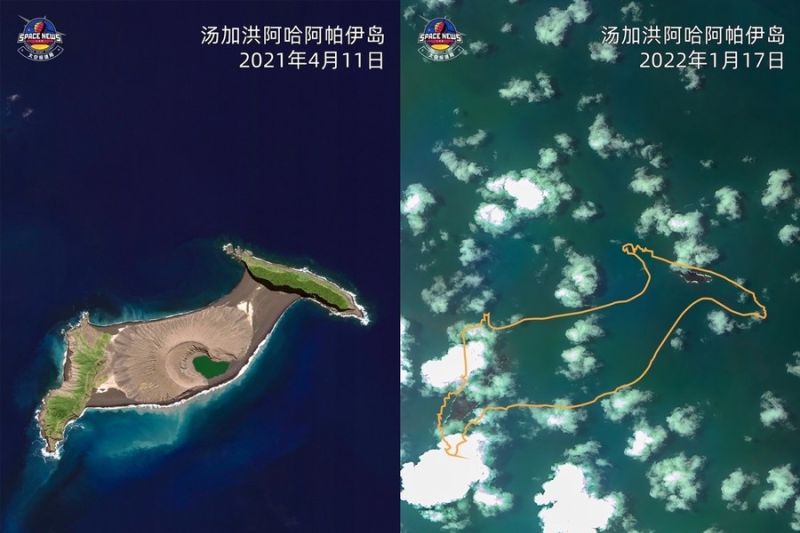Jakarta (ANTARA) – An analysis reveals the cooling effect on Earth’s temperature due to a volcanic eruption in Tonga will be much smaller than previously thought and not strong enough to overcome the long-term trend of global warming.
The study, led by a team of Chinese scientists and published in the journal Advances in Atmospheric Sciences on Tuesday (1/3), showed that the strongest cooling impact from the volcanic eruption was over 0.01 degrees Celsius in parts of Australia and South America, and cooling in most parts of China was recorded at less than 0.01 degrees. Celsius.
They found that global surface temperatures will only drop by 0.004 degrees Celsius in 2023 as a result of the eruption.
According to the study, one or two volcanic eruptions is not enough to change global warming trends in the long term unless there are a number of volcanic eruption clusters that last for centuries, as happened during the Little Ice Age in the previous millennium.
“Emissions from volcanic eruptions in the Southern Hemisphere are mostly confined to circulation in the same hemisphere and the tropics, with less impact in the Northern Hemisphere,” said Zhou Tianjun, co-author of the article and a researcher at the Institute of Atmospheric Physics of the Academy of Sciences. Chinese knowledge.
“This, in turn, causes global cooling that is weaker than volcanic eruptions that occur in the Northern Hemisphere and the tropics,” Zhou said.
The Hunga Tonga-Hunga Ha’apai volcano, located near Nuku’alofa, the capital of Tonga, erupted violently and triggered a tsunami on January 15, 2022.
The eruption caused widespread public concern regarding its impact on global climate as the sulfur dioxide released into the post-eruption stratosphere was oxidized and turned into sulfate aerosols.
The aerosol lasts for one to two years and reduces incoming solar radiation, and causes a brief period of global cooling.
Previous estimates suggested that global surface air temperature declines to be in the range of 0.03 and 0.1 degrees Celsius over the next one to two years.
Reporter: Xinhua
Editor: Virna P Setyorini
COPYRIGHT © ANTARA 2022
–


